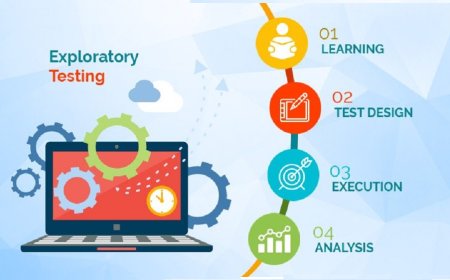How Long Does a Full Body Checkup Take?

Afull body checkup is a comprehensive medical evaluation that assesses the overall health of an individual. It involves a wide array of tests and examinations designed to detect any underlying diseases or health risks early. With preventive healthcare becoming increasingly important, more people are opting for routine full body checkup packages to stay ahead of potential issues. One of the most frequently asked questions is: How long does a full body checkup take? This article aims to answer that in detail while helping you understand what to expect during the process.
What Is Included in a Full Body Checkup?
A typical full body checkup includes a combination of physical assessments, laboratory tests, and sometimes imaging studies. The core components often cover:
-
Blood tests (CBC, lipid profile, blood sugar, liver and kidney function)
-
Urine analysis
-
Chest X-ray
-
ECG (Electrocardiogram)
-
BMI and blood pressure evaluation
-
Abdominal ultrasound
-
Eye and dental checks (optional in some packages)
Depending on the package you choose, a full body checkup can include more advanced diagnostics like thyroid tests, vitamin profiling, cancer markers, or stress tests.
Average Time Required for a Full Body Checkup
The duration of a full body checkup depends on several factors, including the type of tests involved, the number of people being tested, and the operational efficiency of the diagnostic center or hospital. On average, a standard full body checkup takes between 2 to 5 hours. Here's a breakdown of what takes time:
-
Registration and Initial Consultation 15 to 30 minutes
-
Sample Collection (Blood & Urine) 20 to 40 minutes
-
Diagnostic Tests (X-rays, ECG, Ultrasound) 30 minutes to 1.5 hours
-
Physical Examination and Consultation with Physician 30 to 60 minutes
In some cases, if special imaging or tests are included, the full body checkup may stretch to half a day. However, most centers aim to complete the checkup within one morning session.
Same-Day Reports or Delayed?
Some of the basic tests conducted during a full body checkup can provide same-day results, especially blood sugar or ECG. However, more complex tests like hormone levels or imaging reports might take 24 to 72 hours. Most diagnostic centers give you a timeline so that you can plan your schedule accordingly. Always inquire whether the full body checkup youre opting for includes digital or printed reports and how soon you can expect to receive them.
Is Fasting Required Before a Full Body Checkup?
Yes, for most full body checkup packages, a fasting period of 1012 hours is required. This is especially crucial for blood glucose, lipid profile, and liver function tests to ensure accurate results. Ideally, you should schedule your full body checkup in the morning and avoid food or beverages (except water) from the previous night.
How to Prepare for the Checkup
To ensure a smooth and timely experience, consider the following tips before going for a full body checkup:
-
Fast overnight if instructed.
-
Wear loose, comfortable clothing.
-
Carry your previous medical records, if any.
-
Arrive early to complete paperwork and registrations.
-
Inform the staff if you are pregnant or on any medications.
Following these steps helps streamline the full body checkup process and reduces unnecessary delays.
When Is the Right Time to Get a Full Body Checkup?
Ideally, a full body checkup should be done annually, especially for adults above 30 or those with lifestyle-related risk factors such as obesity, diabetes, or hypertension. For younger individuals, a biennial checkup may suffice unless specific symptoms or family history demands earlier attention. Early detection is key to preventive healthcare, and a routine full body checkup is your first line of defense.
Conclusion
A full body checkup is a time-efficient and essential step toward maintaining good health. The entire process generally takes 2 to 5 hours and offers insights that could potentially save lives by detecting diseases in their early stages. By allocating just half a day, you invest in your long-term well-being. Prioritize a full body checkup once a year to stay informed about your health status and to take proactive measures when needed. Dont wait for symptoms to appearprevention always begins with a timely full body checkup.






























